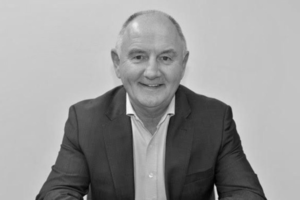It needs to be said, most advisers are great advisersBY CHRISTOPHER PAGE | THURSDAY, 10 JUL 2014 10:12AMEmotions are running high among financial advisers and it's not surprising. Over the past year, but especially over the last few weeks, financial planning has been in the eye ... Upgrade your subscription to access this article
Join the growing community of financial advisers
with unlimited access to our latest news, research and analysis of the industry.
Become a premium subscriber today. |
Latest News
ASIC bans advisers for dodgy Shield Master Fund advice
|Two former MWL Financial Services financial advisers who invested clients' superannuation in the Shield Master Fund have copped bans from the regulator.
Findex partners with brokerage firm to deliver 'best-in-class' service
Findex is entering a joint venture with Ortus Financial to bolster its expertise and breadth of its service.
ASIC funding levy to charge advisers $46.2m
The financial advice sector can expect to contribute $46.2 million to ASIC's industry funding levy for the 2025 financial year, new estimates show.
ASIC releases new relief for reportable situations regime
ASIC has provided AFSLs new reliefs to help them manage the reportable situations regime, which includes extending the length of investigations reportable from 30 days to 60 days.
Further Reading
Cover Story

Moving mountains
MAGDELINE JACOVIDES
FOUNDER & FINANCIAL PLANNER
MAZI WEALTH
FOUNDER & FINANCIAL PLANNER
MAZI WEALTH
On top of running a successful practice, Mazi Wealth founder Deline Jacovides is a fierce advocate for closing the superannuation gender gap and has built a highly popular social media presence that takes financial literacy to the next level. She tells Karren Vergara where her passion comes from and how she integrates it all with family life.
























All advisers know that our clients hold us in high regard. Trouble is, we're preaching to the choir. If figures quoting that only one in four seeks the assistance of a financial adviser, and assuming that only half of those that do actually engage with one for ongoing advice, the message is yet to be delivered to 7/8ths of the population. That being the case, the LAST thing we need is disunity amongst the representative bodies. What's more, we especially don't need one organisation telling the public that they are better than the others.
Well said Christopher. Thank you.
...and most banks aren't. There needs to be far less focus on advisers and far greater focus on the rapacious senior management of the banks and the tardy senior management of ASIC.
Narev: "minimal impact on shareholders". Tanzer: "we did a pretty good job".
They would be hilarious if it weren't for all the innocent people having their lives ruined.
Well said Christopher. Thank you on behalf of all the very good advisers in Australia.
Well articulated Christopher, I am well and truely sick of these professional bodies throwing banter backwards and forward at each other, instead of representing what they are there for: to represent their members who are doing a great job advisors. The advisors that are not doing the right thing by their clients should not be members of these bodies should they? As you say we need an united voice.
I totally agree Christopher. Very well said.
Thank you
Very well said. Thank you. Now just need to get these sorts of articles out to the wider community!
I still wonder how, as financial experts, so many advisers continue to try and justify that commission and percentage fee structures are good for the client and that they do not lead to gross conflict of interest. A true financial adviser would seek efficiency and cost reductions for their clients, as they do with their own affairs, and charge a reasonable flat fee for any work that is done.
They would also never expect to be paid for doing nothing for many years; that is a disgusting and unfair treatment of people who have trusted you.
These scandals are the tip of the iceberg in a conflicted and broken system that by my reckoning takes about 50% too much in revenue straight out of their "valued" client's pocket. If we charge reasonable fees then those avoiding us (massive numbers of people never seek the right advice) might be tempted to meet a good financial adviser instead of asking their accountant/real estate agent/broker.
There are people who argue that it is red tape to tell their clients how much they made off them. Anyone worth their title of 'adviser' would have the guts to bill their client directly, as do most other professionals. They manage to survive and hold a position of trust in their communities whilst delivering a service that is obviously useful to a paying customer.
If there were no commissions or percentage based product flogging there would simply be less temptation to rip people off and more pressure on product providers to offer services that truly benefited clients, as opposed to structures that made advisers want to keep their clients captured whether it remains in their interests or not.
How many of these advisers let their clients hold life insurance policies even after the kids and mortgage are gone? Just to keep the inflation boosted commissions coming in for a few more years? I've asked this question in a room full of top advisers and heard crickets....Just because something is not a crime, doesn't mean it's good financial advice!
Rage against ALL commissions!
Very well said! It is unfortunate in any position where a very small percentage of people operating unethically can tarnish the perception of an entire profession. Have faith in the advisers and you will be rewarded!
Well said Christopher. It is a pleasant change to hear the positive rather than the negative.
To Ben Liddicoat:
Are you really saying that if an adviser were to be remunerated via a commission or adviser service fee based on a percentage and all cost/fees were clearly and fully disclosed, agreed to by the client as a preferred method of payment and the adviser had completed comprehensive research and comparison, abided by a duty of care and acted in their clients best interest and the level of remuneration to the adviser was equivalent in dollar terms to the direct fee charged by you, that this is a disgusting rip off and a conflicted process based on product flogging?
The consumer should always have a choice of how they pay for services.
Whether one model is more appropriate for your clients or another model is more appropriate for other consumers, is not your call.....believe it or not.
You structure your business model on your analysis, but don't tell every adviser or every consumer in Australia that your model is right and anything else is entirely and utterly wrong.
The protection for the consumer is governed via the strict process of providing advice, the best interest duty and being educated and aware of how to access appropriate and reliable advice.
Are you suggesting because the children have left home and the mortgage debt has been extinguished, advisers should be recommending to clients to forgo their Life Insurance as there is no further need for financial protection?
The reason you have heard crickets in the room when you have asked this question is because the top advisers in the room didn't wish to waste one second their breath answering such a ridiculous question.
Craig, thanks for the response. Apologies if I was unclear.
What I think is disgusting and a ripoff, is getting paid for doing nothing. I'm sure everyone can agree on this. If this is not you, if you believe that every dollar you receive in revenue from your client's products is truly earned, then well done to you.
Percentage based remuneration is conflicted either from the start, or at some point in the future. If the advice to reduce a clients insurance cover and costs, or lower their exposure to risk, will reduce your income as an adviser, then you are conflicted. If you deal with these sorts of conflicts ethically, then well done to you.
I do not say that all people without a mortgage or dependents need to forgo insurance. What I do say, is that if these factors were the main reason for the cover, then why are advisers so rarely inclined to recommend a reduction of the cover?
That a client chooses anything is heavily reliant on how their adviser presents it to them. If you're an adviser with years of experience, and commissions are how you work, they will sign what you give them.The client only really chooses whether they pay you directly, through commissions, or a combination if you actually offer them this choice. If you offer them a full choice of how they pay, then well done to you.
Once again, good to hear some feedback, however much you missed my points. Yours is typical of the straw man arguments I encounter, designed to do nothing but protect the commission train rolling along.
My over-arching point being that the lack of respect for the profession in the wider community is proof that is is broke, and we should help fix it. If less conflict existed, more trust of financial advisers could be established in the community. Just imagine if we could get more than 10-15% of the population actually paying to seek advice? Wake up to the bleeding obvious.
Ben, we make recommendations to clients to reduce their level of cover all the time in line with our commitment to clients to 'actively manage' their insurance needs. We find that clients for a large part resist the recommendations, even though the mortgage and kids may be gone. They view it as security for their retirement in the event that one of them dies prematurely or as a cheap way of providing a large bequest to their children, just in case.
For other advisers, I've know that some I've spoken with are reticent to recommend a reduction in cover, not from greed as you assert, but from concerns about getting sued by beneficiaries who may be unhappy that they only get a cheque for $500K from the insurance company instead of one for $1M... We all know that there would be plenty of lawyers willing to take 30% of any raid on an advisers PI cover, so those advisers take the more conservative road and wait for the client to initiate a review.
Greg! Fantastic to hear about your approach to active management of a client's level of insurance. Would be great if there were more like you. I get that point about security, and have had clients say as much to me when recommending a reduction. The best thing is they can make the decision knowing the cost to their retirement, if the risk event does not occur. After the recommendation is made, it's a client's call. Nothing wrong with that.
As for the advisers afraid of a lawsuit. Gutless wonders. I thought the job of adviser was to try and get the best outcome for their clients, balance risk vs reward, cost vs benefit etc etc you know. Best Interests?
I'm not a gambling man, but I'd be willing to back the PI lawyers against the ambulance chasers. Especially if well documented advice was given to save a client some money, it was also recommended that the savings were put to better use for retirement, and most importantly the recommendation was made by an adviser who was looking after the client's interest before their own by losing out on some precious commission.
Sorry, but the argument is just plain silly. Unless you can find me some legal precedents, you're jumping at shadows.